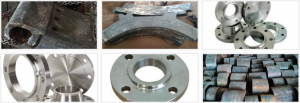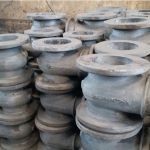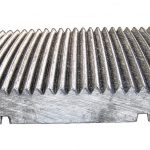A few important things to know about alloy steel and its casting
Alloy steel is formed when other elements like metals or non-metals are added to carbon steel. The proportion and composition of the alloying element decide the different characteristics of the alloy steel. If you see fundamentally, the steel itself is an iron alloy with a low amount of carbon. Steel can be categorized into 4 distinct categories – carbon steel, stainless, tool steel, and last but not the least, alloy steel. Alloy steel is formed when other elements like metals or non-metals are added to carbon steel. The proportion and composition of the alloying element decide the different characteristics of the alloy steel. If you see fundamentally, the steel itself is an iron alloy with a low amount of carbon. Steel can be categorized into 4 distinct categories – carbon steel, stainless, tool steel, and last but not the least, alloy steel.
Alloy steel basic composition
Here we will talk about alloy steel. This variety of steel comprises carbon, iron, and other substances like silicon, manganese, vanadium, chromium, and copper. Depending on the added elements, alloy steels feature distinct characteristics.
Kinds of alloy steel
Two types of alloy steel are available in the market – high-alloy steel and low-alloy steel. High alloy steels contain more than 8 percent alloying elements while low-alloy steels contain less than 8 percent alloying elements.
Alloy steel applications
Any leading alloy steel casting manufacturer produces hundreds of items with alloy steels of different compositions. And the applications may include alloy steel tubes and pipes, alloy steel sheets, coils and plates, alloy steel wires, bars and rods, buttweld fittings, forged fittings, flanges, fasteners, and many more. The steels are used in many industries like mining, automobiles, railways, machinery and equipment, buildings, road constructions, appliances, and off-shore applications.

Alloying metals or non-metals
Around 20 alloying elements are available to add to carbon steel for making different grades of alloy steel. Each of them has different properties. Some of the major alloying elements along with the effects are as follows:
• Chromium – It enhances the hardness and toughness of the steel while making it wear-resistant.
• Aluminum – This rids steel of sulfur, oxygen, and phosphorus.
• Manganese – It enhances ductility, high-temp strength, hardenability, and resistance to wear.
• Silicon – It helps to increase strength and magnetism.
• Copper – It enhances the hardness and corrosion resistance capacity of the steel.
• Vanadium – This increases the capacity of shock resistance and corrosion resistance. It also enhances the toughness and strength of the alloy steel.
• Tungsten – It enhances the hardness and strength.
Apart from the above ones, cobalt, bismuth, titanium, molybdenum, tellurium, boron, lead, sulfur, zirconium, niobium, nitrogen and selenium also act as alloying elements. They are used singly or in combinations depending on the traits desired.
Alloying effects
Alloying elements are capable of altering carbon steel in various ways. It affects the heat treatment condition, mechanical properties, and microstructure of the steel. The latest technology helps the manufacturers to foresee the microstructure and properties while it is heat-treated, cold-formed, alloyed, or hot rolled. If characteristics like weldability and high strength, for example, are needed to include in the steel for specific reasons, carbon steel can’t serve the purpose alone. The brittleness of carbon makes the weld brittle. So, to reduce this, other elements like nickel or manganese are added. And this way, manufacturers make high-strength steel alloy with high weldability.
As you can see, alloy steels play a vital role in construction as well as other industries. The steels offer high performance, durability, high strength, economy, corrosion resistance, higher strength to weight ratio, high performance even under extreme conditions.




